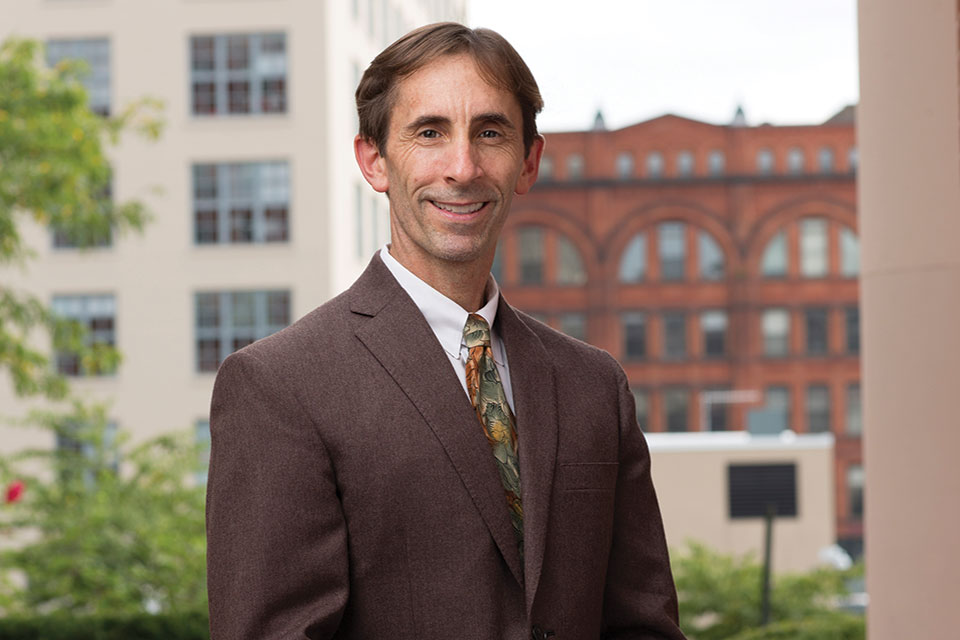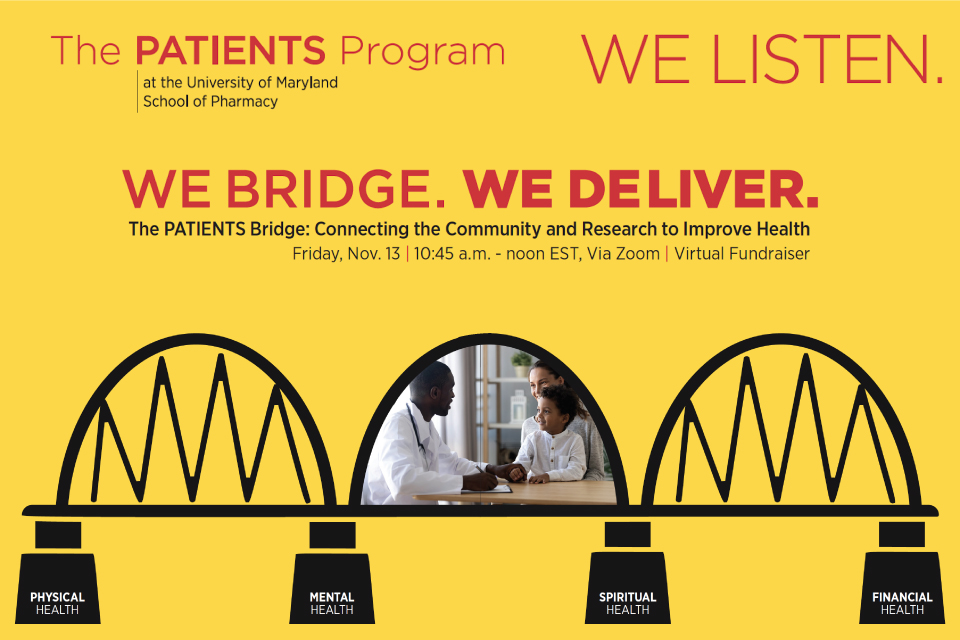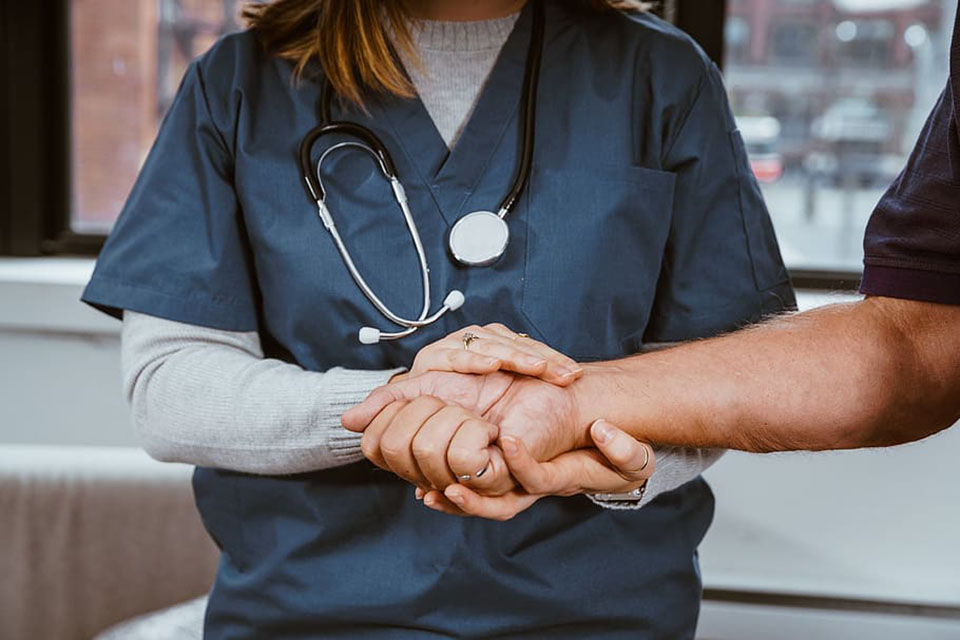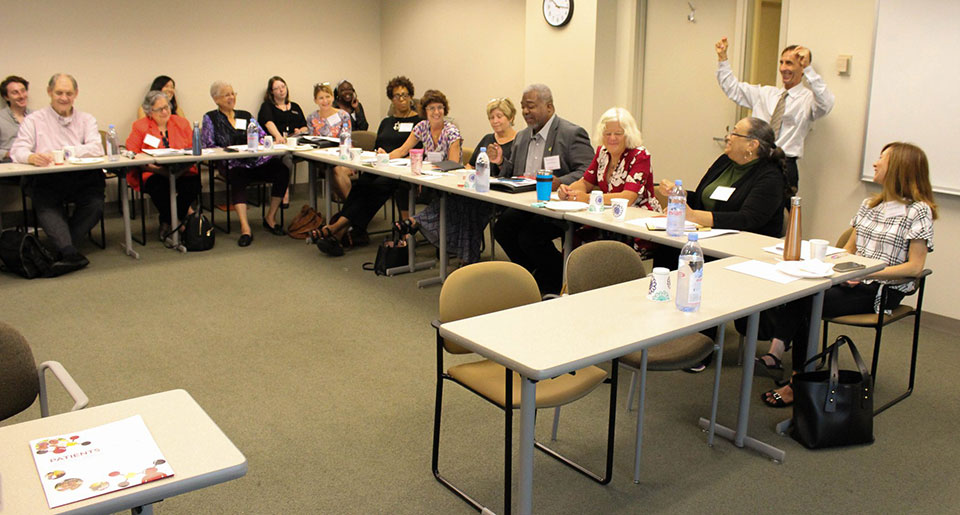SOP’s Mullins to Establish New Learning Health Care Community in Baltimore
$250,000 from Merck will support effort to increase collaboration among patients and health care systems and promote health equity in West Baltimore.

By Malissa Carroll
January 31, 2018
Daniel Mullins, PhD, professor and chair of the Department of Pharmaceutical Health Services Research (PHSR) and director of The Patient-Centered Involvement in Evaluating the Effectiveness of Treatments (PATIENTS) Program at the University of Maryland School of Pharmacy, has been awarded a $250,000 investigator-initiated grant from Merck to develop guidance for an innovative Learning Health Care Community in West Baltimore. The project, titled “Co-developing Sustainable Learning Health Care Communities Using Community-Based Participatory Research,” aims to increase collaboration between patients and health care systems and promote greater health equity across the local area.
The grant will be used to support pilot work for future grants to implement recommendations from the guidance and create healthier communities in the neighborhoods located to the west of the University of Maryland, Baltimore (UMB) campus.
“As a member of the West Baltimore community, the School of Pharmacy has a responsibility to use our expertise in pharmacy education, research, and patient care to ensure that our neighbors are living healthy lives,” says Natalie D. Eddington, PhD, FCP, FAAPS, dean and professor of the School. “Under the direction of Dr. Mullins, the faculty and staff in The PATIENTS Program have been at the forefront of this work. This new initiative represents a natural evolution in the program’s efforts to empower patients to propose questions about their health care concerns and actively participate in studies to answer them. I am excited to see how this project helps transforms the way that individuals think about and participate in their health care.”
For their project, Mullins and his team will build on the Learning Healthcare System model developed by the Institute of Medicine, in which “science, informatics, incentives, and culture are aligned for continuous improvement and innovation, with best practices seamlessly embedded in the delivery process and new knowledge captured as an integral by-product of the delivery experience.” While a Learning Healthcare System focuses on using the best available evidence to tailor care to each patient’s unique needs while helping educate patients throughout the delivery of that care, the Learning Health Care Community will focus on establishing partnerships with churches, organizations, health care providers, caregivers, health care systems, and other area stakeholders to actively involve patients in the community in their health care. Community leaders will be critical in facilitating patient engagement in an environment centered on comfort and trust.
“The Learning Healthcare System model is an excellent way to ensure that patients and their health care providers are using evidence-based treatments; however, the current implementation approach for this model requires that patients enter into a health care system to be active participants,” says Mullins. “We want to engage patients and other individuals currently living in the community earlier in the process to understand how we might build upon the innovations and lessons learned from Learning Healthcare Systems to help prevent, rather than just effectively treat, illness and disease.”
To assist with the development of an innovative framework for a Learning Health Care Community that effectively addresses the diverse needs of underserved communities, Mullins and his team will assemble an advisory board that includes community members, patient and caregiver advocates, health care providers, and other stakeholders to help direct the research plan. Applying principles from the field of community-based participatory research, the team will work with partners in the PATIENTS Program to co-develop an interview guide that researchers will use to conduct focus groups and key informant interviews with the residents of West Baltimore, their health care providers, and other stakeholders.
By addressing the health needs of the community, the project will help alleviate joblessness and other socioeconomic challenges affecting local residents.
“The promise of jobs has not arrived in West Baltimore, and many residents who are able to get a job have not received the appropriate physical and mental health services necessary to help them keep their job, get promoted, or benefit from other employment opportunities,” says Mullins. “Our Learning Health Care Community combines individuals’ desire for a job with the reality that getting and keeping a job requires the skills and ability to work, and this includes being physically and mentally healthy.”
The research related to this project will conclude in December 2018. Findings will be shared with the community through a patient-centered dissemination strategy developed by the research team in collaboration with its community partners. Future work related to this effort will include implementing the plan of action developed with those findings and replicating the Learning Health Care Community model in other cities across the United States.
“The Learning Health Care Community will help ensure that people living in our community have access to quality health care and also have an opportunity to participate in their care,” says Jacqueline Caldwell, president of the Greater Mondawmin Coordinating Council. “They will be able to meet with a doctor who can help them and communicate with them in their own language so that they understand how to live healthier lives.”
“Having the Learning Health Care Community in our neighborhood will allow us to learn about our disease,” adds Gail Graham, director of HIV/AIDS outreach services for Mt. Lebanon Baptist Church. “Instead of letting the doctors make all of the decisions, we will be able to learn about the disease and make decisions about our own health.”



